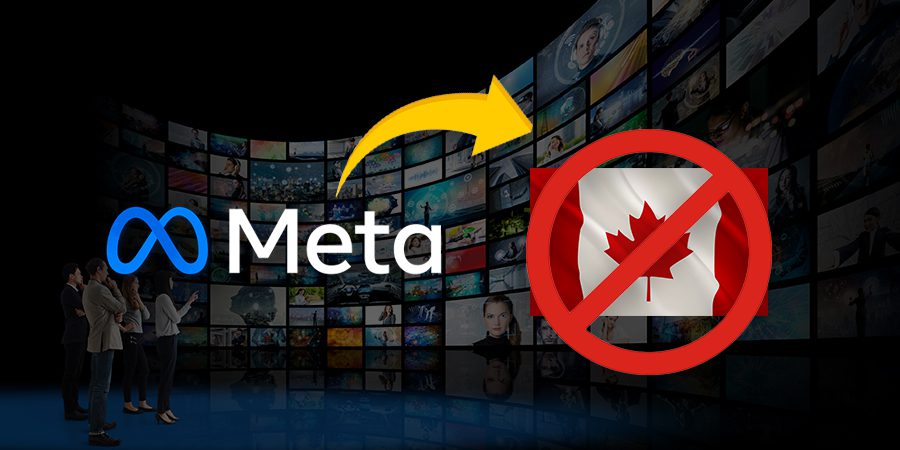
This article discusses why Meta Platforms Inc., which owns Facebook and Instagram, has said it will block news content for Canadians if the Online News Act becomes law in its current form.
Key takeaways:
- If the Online News Act passes in its current form, Meta Platforms Inc., the parent company of Facebook and Instagram, will prevent Canadians from accessing news content on its platforms.
- The Online News Act requires tech companies like Meta and Google to pay news publishers for their content, which they argue is neither sustainable nor workable.
- Canadian Heritage Minister Pablo Rodriguez expressed disappointment that Meta was resorting to threats, and he reiterated that the bill had nothing to do with how Facebook makes news available to Canadians.
- Tech companies like Meta argue that they are not unfairly benefiting from their association with publishers, and posts containing links to news articles constituted less than 3% of what users see in their Facebook feed.
- The Canadian Media Concentration Project found that Google and Facebook had a significant market share of internet advertising revenue in Canada, while traditional media companies had very little.
- Facebook claims that it has provided significant support to publishers, delivering more than 1.9 billion clicks valued at $230 million to publishers in the year ending April 2022.
- Google Canada’s head, Sabrina Geremia, expressed uncertainty about the bill, stating that it would significantly alter their current structure for providing free news links.
- As the bill continues to move through parliament, it remains unclear whether Meta and Google will follow through on their threats to block news access in Canada.
Meta to Block News Access for Canadians if Online News Act Becomes Law
Meta Platforms Inc., the parent company of Facebook and Instagram, has announced that it will end the availability of news content for Canadians on its platforms if the Online News Act passes in its current form.
The Online News Act, also known as House of Commons bill C-18, was introduced last year to regulate tech companies like Meta and Google, requiring them to pay news publishers for their content.
Meta’s Argument Against the Online News Act
Meta argues that the legislative framework of the bill is neither sustainable nor workable, as it would force them to pay for links or content that they do not post and are not the primary reason why people use their platforms.
The move by Meta comes after Google started testing limited news censorship in response to the bill.
Canada’s news media industry has been pushing for more regulation of tech companies to allow them to recoup financial losses they have suffered as tech giants like Google and Meta have gained a greater share of advertising.
Government Response and Publishers’ Arguments
In response to Meta’s threat, Canadian Heritage Minister Pablo Rodriguez expressed disappointment that the company was resorting to threats rather than working with the Canadian government in good faith.
He reiterated that the bill had nothing to do with how Facebook makes news available to Canadians and that all they were asking was for Facebook to negotiate fair deals with news outlets when they profit from their work.
According to Marc Dinsdale, who leads media partnerships at Meta Canada, he disagreed with the proposed legislation’s presumption that their company unfairly benefits from their association with publishers.
He stated that posts containing links to news articles constituted a small fraction, less than three percent, of what users see in their Facebook feed.
Furthermore, he claimed that Canadians have expressed their desire to see less news and political content on the platforms.
But, according to Rodriguez and media companies, tech companies are taking away advertising revenues from them.
In 2018, the Canadian Media Concentration Project found that Google had taken 50% of the country’s internet advertising market share, with Facebook at 27.3%. Bell, Torstar, Twitter, and Postmedia had less than 2% each.
Facebook’s Argument for Helping Publishers
Facebook claimed that it is supporting publishers instead of causing harm to them.
It has provided more than 1.9 billion clicks that were valued at $230 million to publishers in the year ending April 2022.
All of these clicks were willingly placed by publishers on Facebook.
Dinsdale remarked that they are being asked to comply with a system that allows publishers to charge them an unspecified price for any amount of content they choose to supply.
Google’s Response to the Bill
During a meeting at the House of Commons heritage committee to discuss the bill, Sabrina Geremia, who heads Google Canada, stated that the proposed legislation would significantly alter the structure her company uses to provide free news links.
She further mentioned that the bill is constantly evolving, and crucial issues remain unresolved, leading to uncertainty over the possibility of continuing to link news as they do presently.
Conclusion
In conclusion, the proposed Online News Act has created a rift between tech giants like Meta and Google and Canadian news media companies.
While the bill aims to level the playing field for news outlets competing with tech firms for advertising dollars, tech companies argue that it would be unsustainable and unworkable.
As the bill winds through parliament, it remains to be seen whether Meta and Google will follow through on their threats to block news access in Canada.
 Sections of this topic
Sections of this topic















